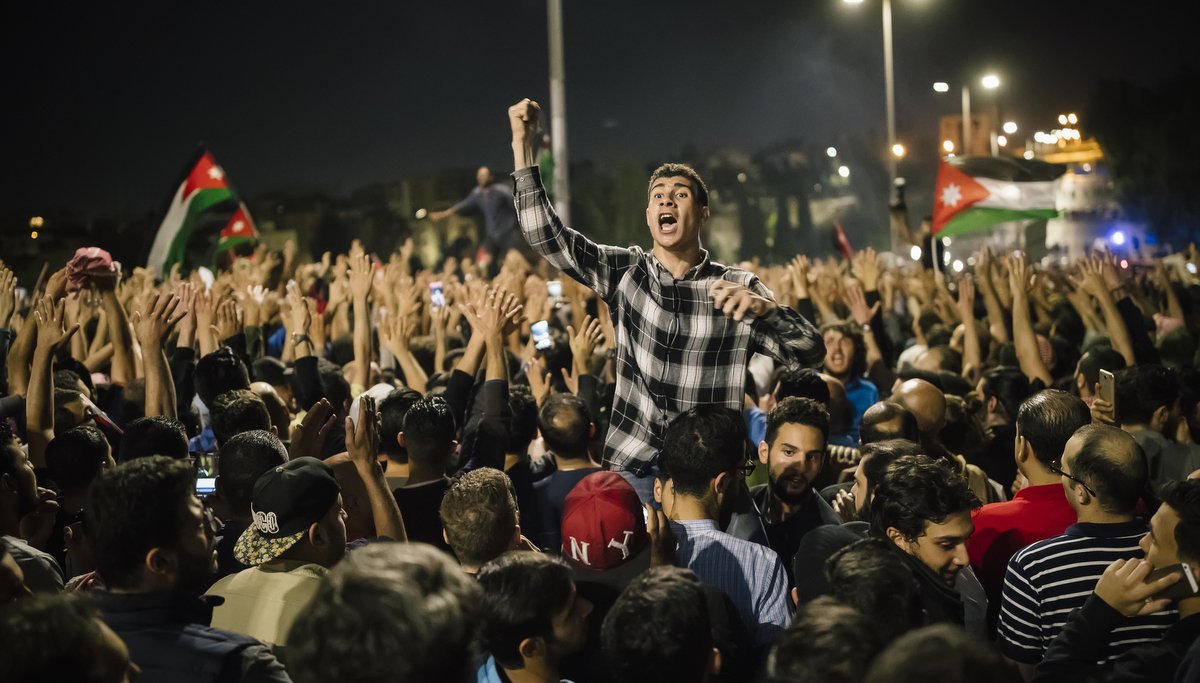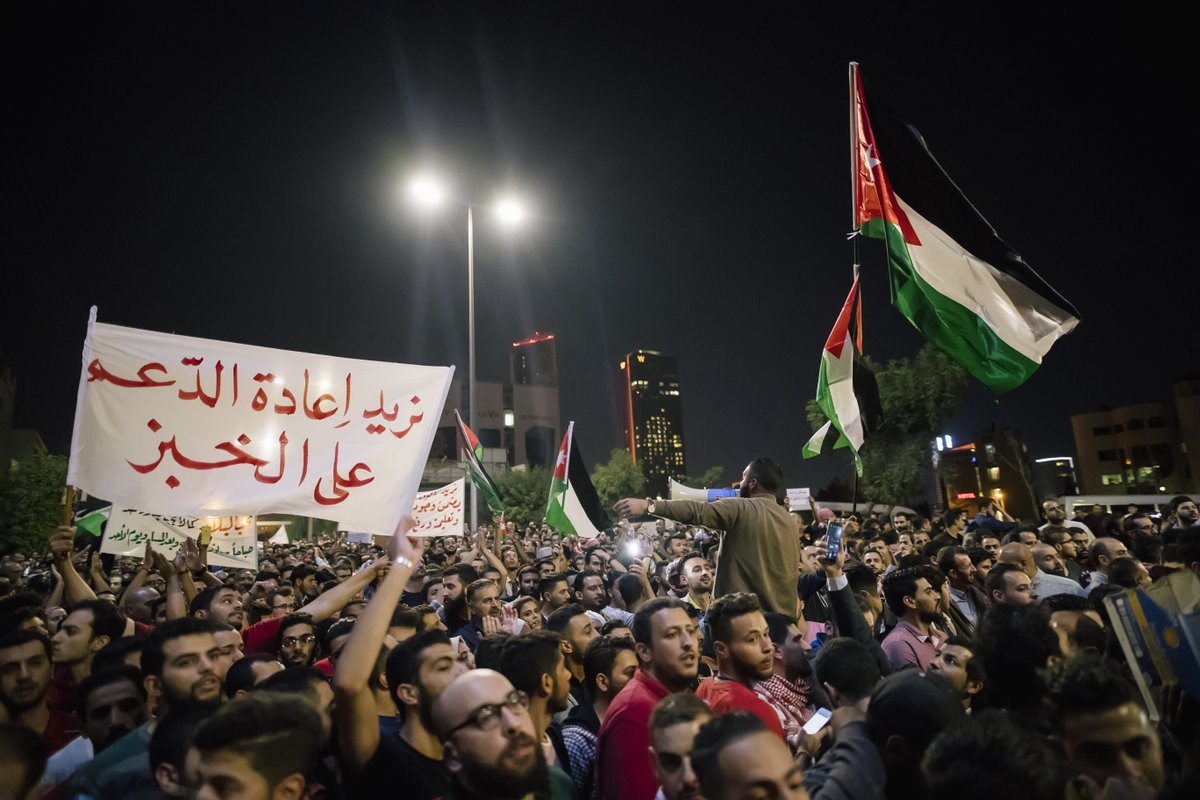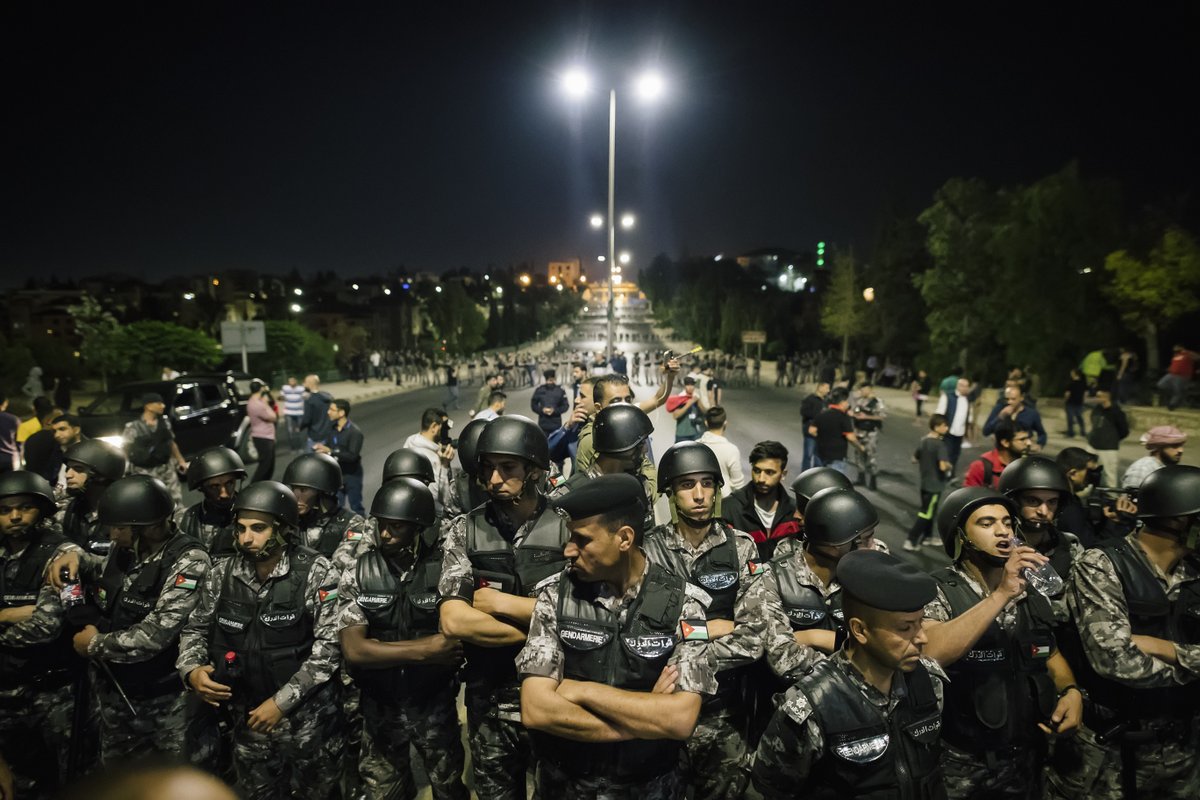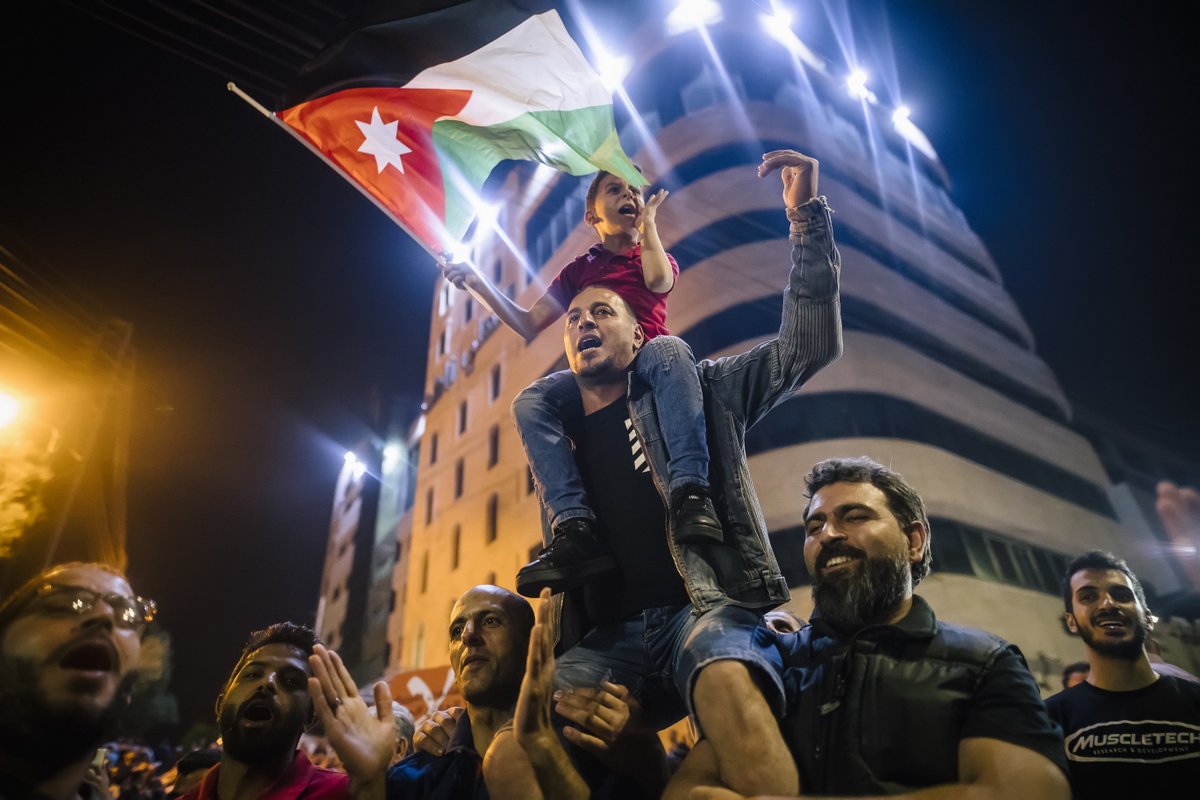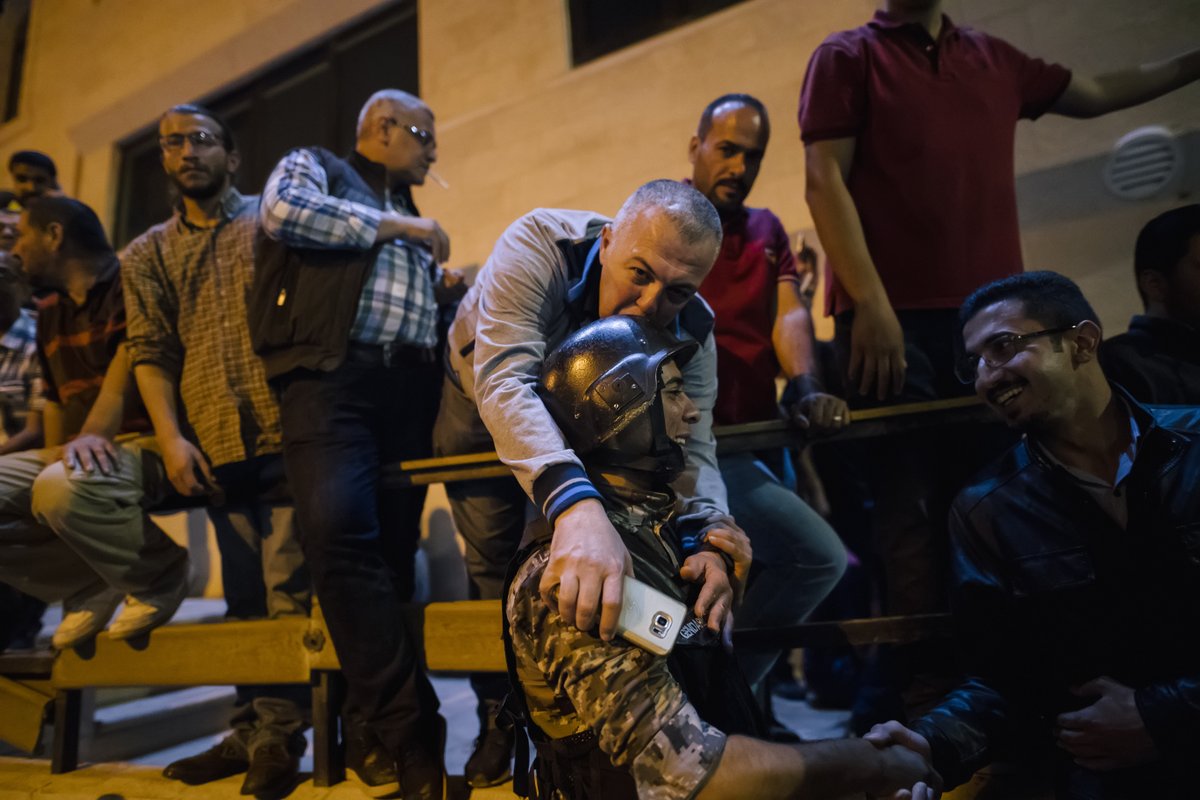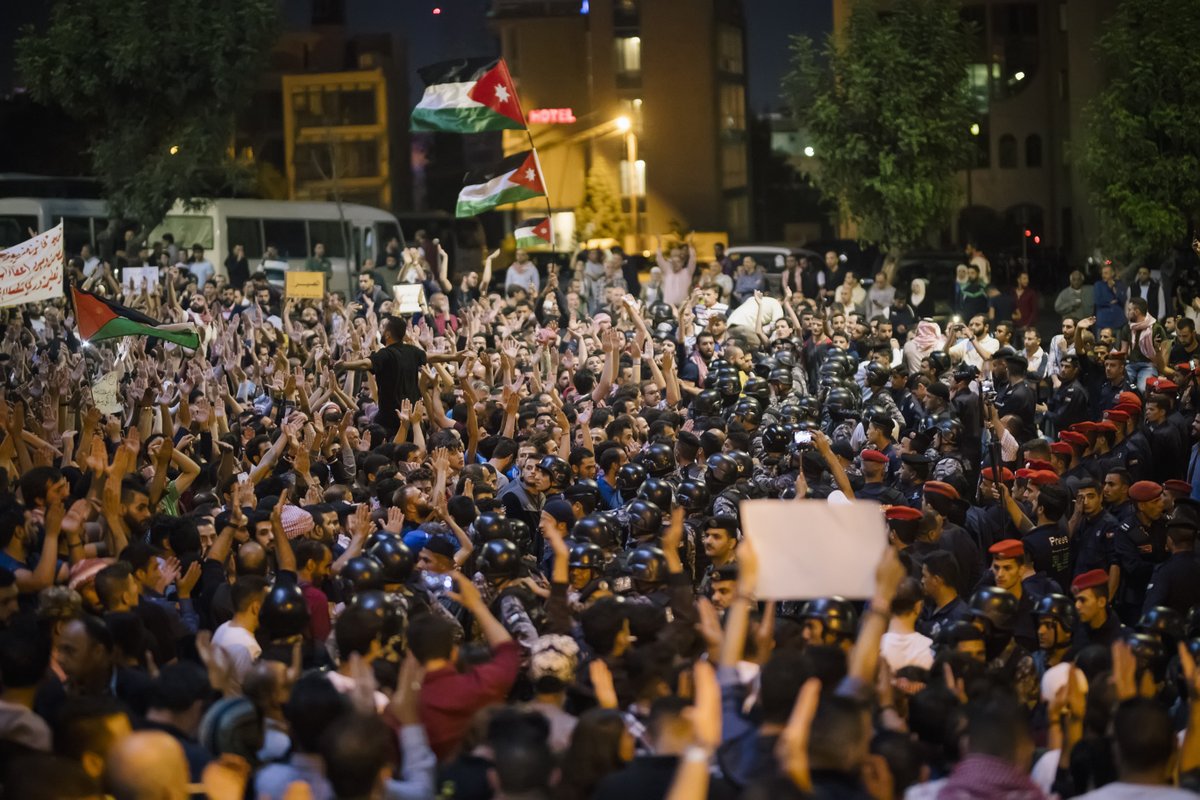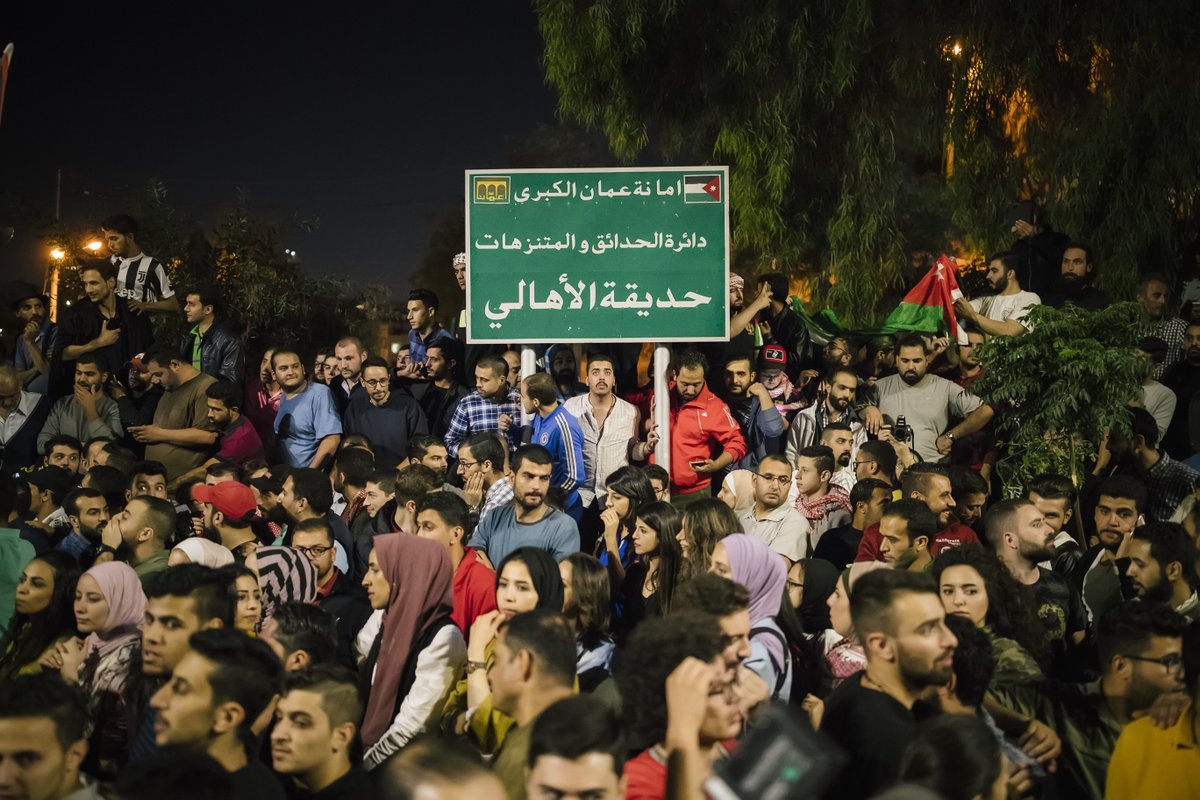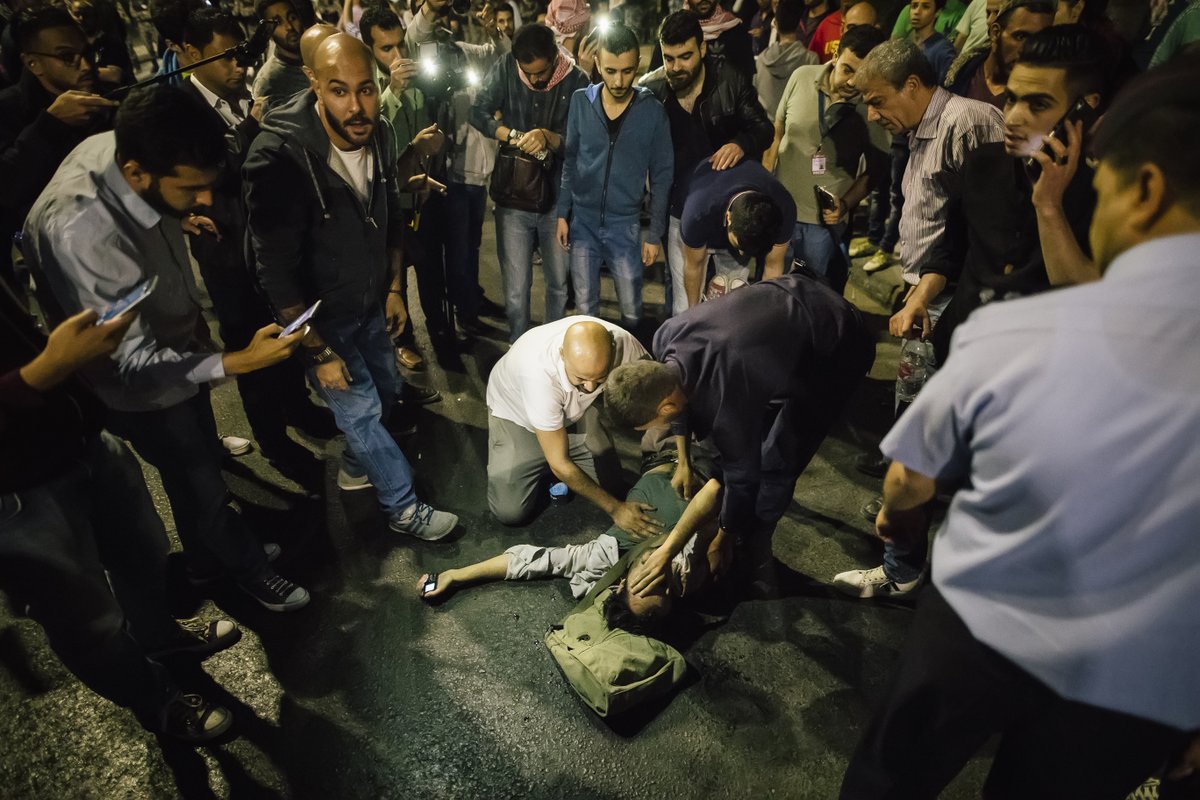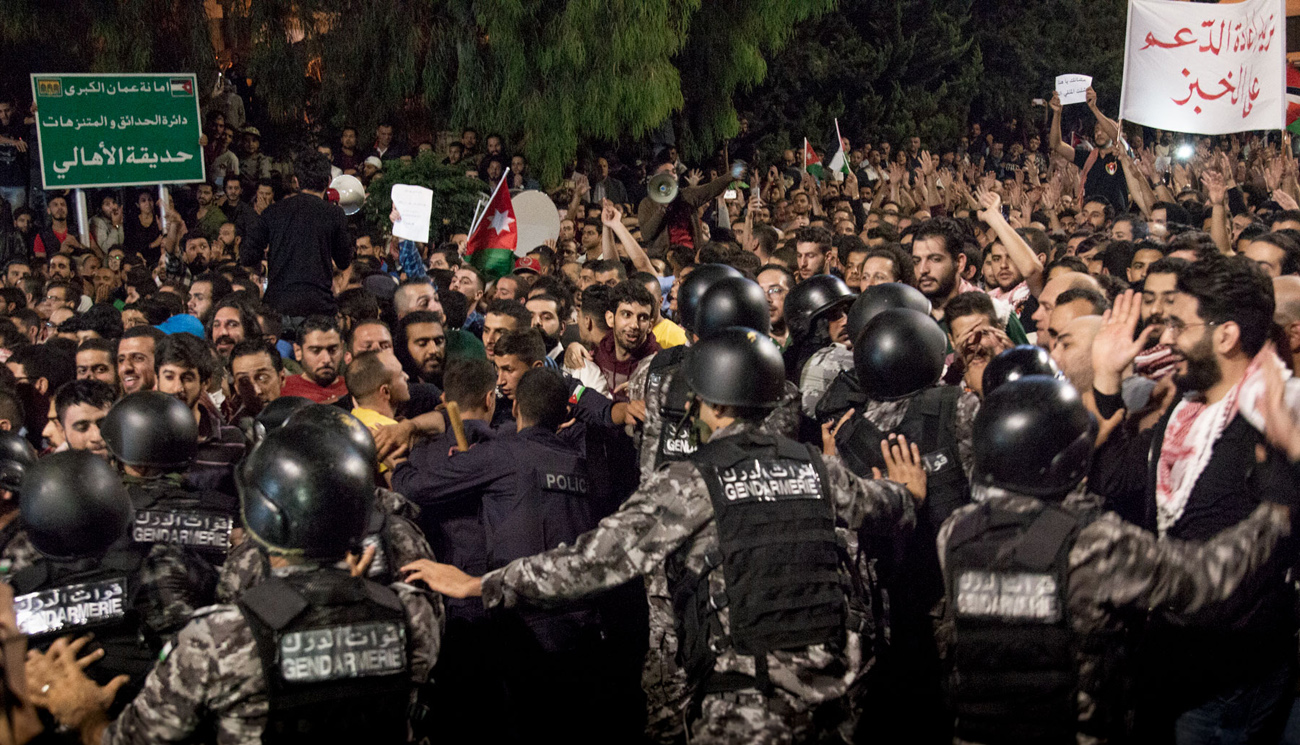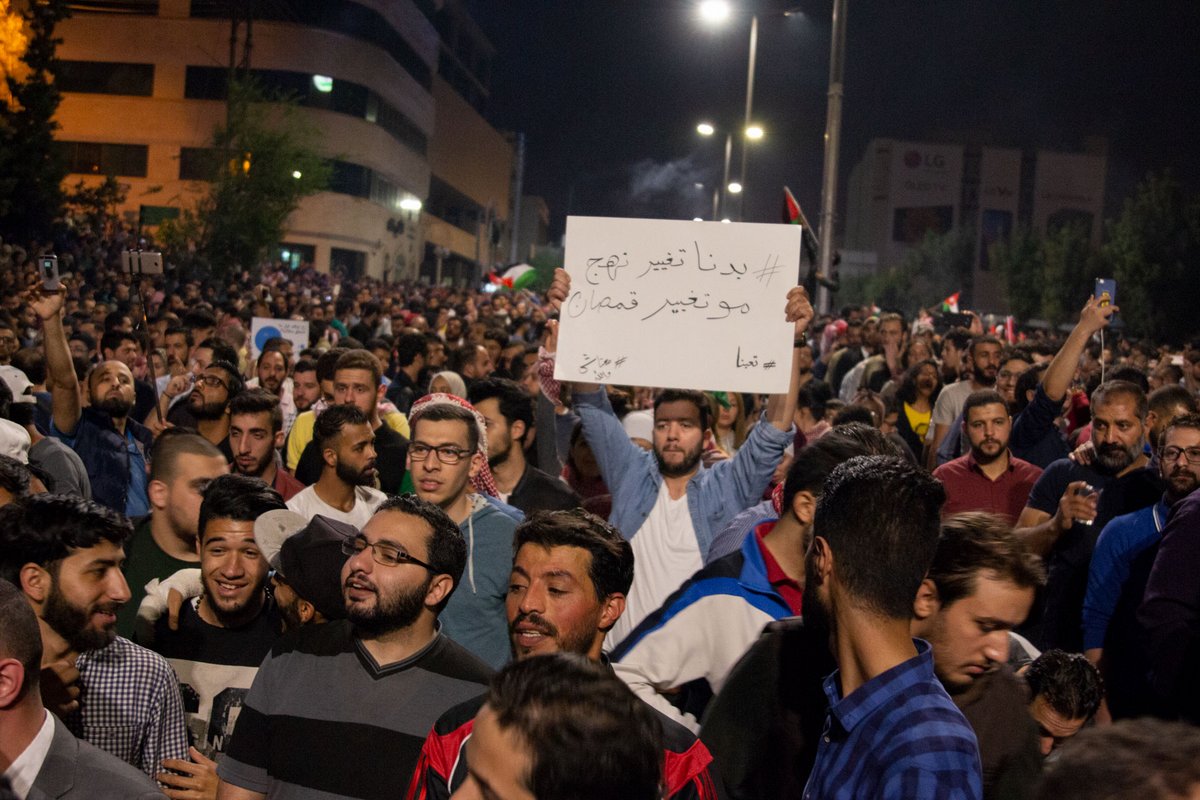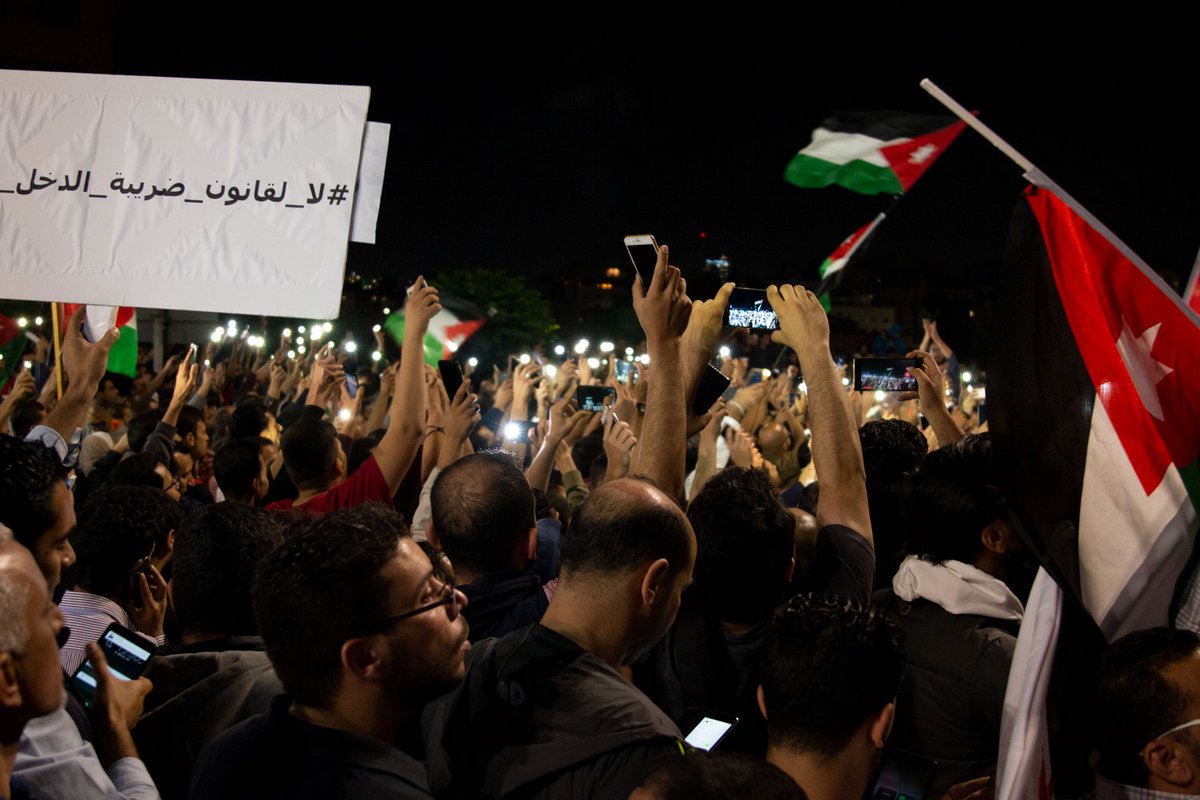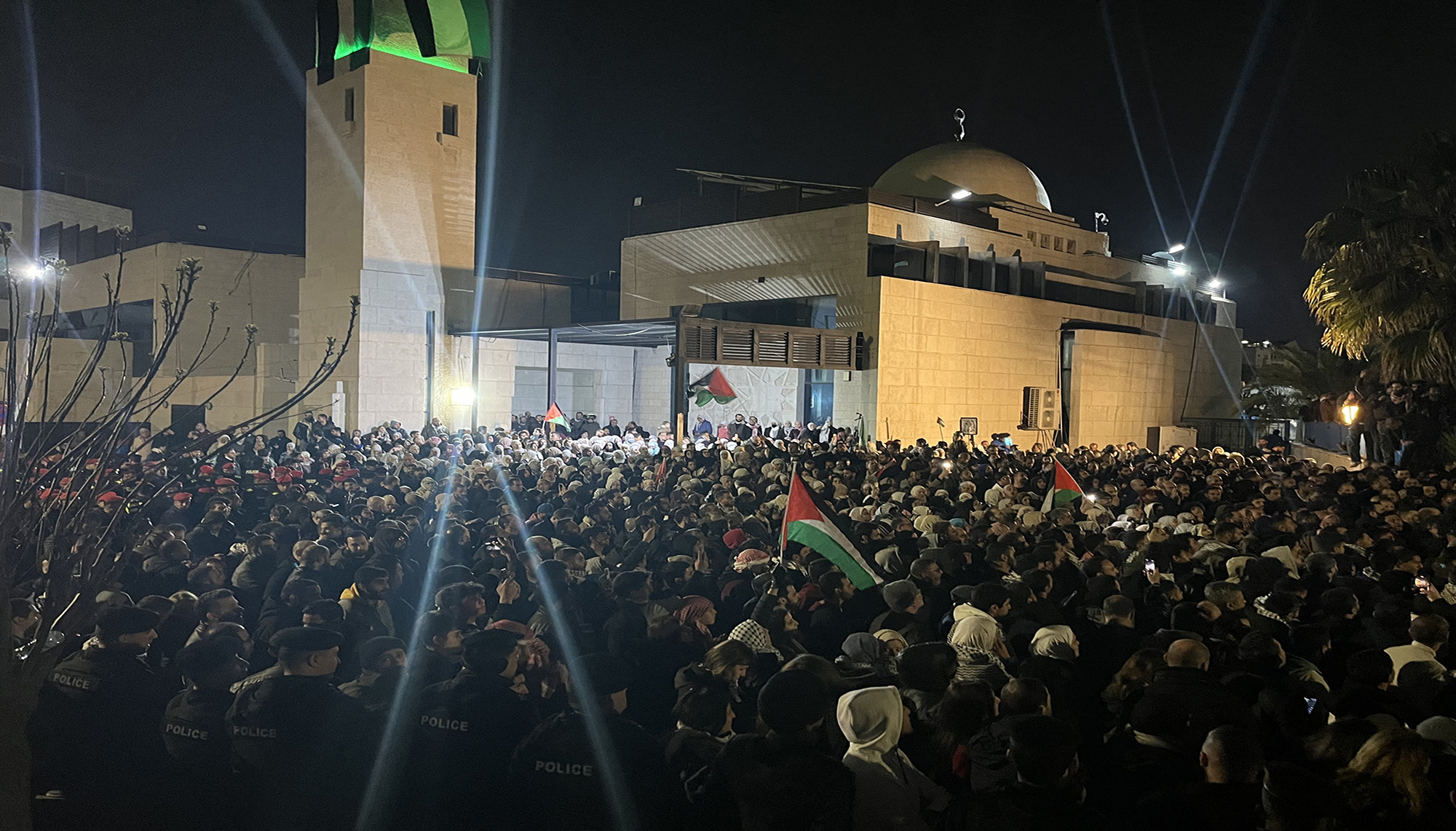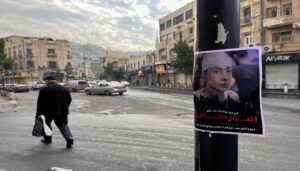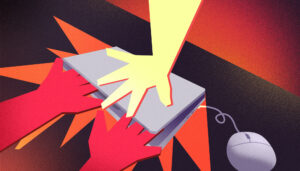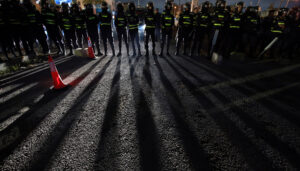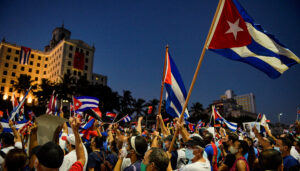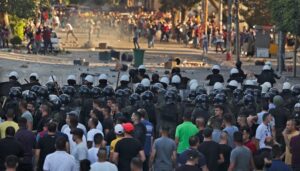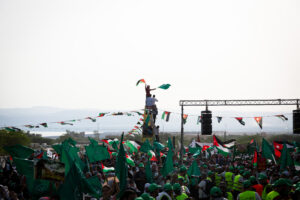By Dalal Salameh and Dana Gibreel, photos by Ali Saadi and Moawia Bajis
After four consecutive nights of protests across Jordan, King Abdullah asked Prime Minister Hani Al-Mulki to submit his resignation. Before Al-Mulki resigned Jordanians were already speculating on social media that the new Prime Minister will be Omar Razzaz, the outgoing government’s minister of education. By Monday, news media announced the appointment of Razzaz as Prime Minister, but Al-Rai newspaper, considered a voice of the state, said that the King hasn’t officially appointed anyone to replace Al-Mulki yet. [Update: King Abdullah officially appointed Razzaz as Prime Minister Tuesday morning].
On Monday afternoon, the heads of the police and gendarmerie forces held a joint press conference, the first after four days of continuous protests. They presented a summary of all protests in different parts of Jordan: on the first night (May 31) there were 45 protests, in which 2,500 people participated. On the second night there were 171 events with 18,500 protesters; on the third, 125 protests with 14,500 participants; and finally, on the 4th night, Sunday June 3, 175 protests across Jordan with 14,500 participants.
The heads of the police and gendarmerie said that their forces maintained the highest degrees of self restraint in dealing with the protesters, to prevent any injuries. They said there were some acts of sabotage and attacks on public and private property, as well as closures of vital roads. They said there were attacks on security officers and that this resulted in 42 of them being injured, some with gunshot and fireworks. There was one civilian casualty, of a woman who they said «claimed» she was beaten by security forces, and the case is currently being investigated. The rest of the civilian casualties were mostly cases of fatigue and fainting from stampede.
According to the press conference, 60 people were arrested in different governorates, including 8 people of another “Arab nationality” that the two speakers refused to specify.
Activists who had participated in 4th circle protests had said on Sunday that four of them had been arrested. And although the judge agreed to release them without bail, the governor of Amman kept them in administrative detention. They’re currently in Marka prison, according to activists.
Protests continue despite PM’s resignation
Al-Mulki’s resignation was one of the main demands that protesters called for, but meeting this demand did not put an end to protests. The head of the Council of Syndicates Ali Al-Abous announced that Wednesday’s general strike that the professional syndicates had called for is still on even with the change of government, because calling off the strike is contingent on withdrawing the proposed tax law, he said.
Night protests after Tarawih prayers also continued for the fifth consecutive night in cities and villages across Jordan.
In Amman, two protests headed towards Fourth Circle on Monday night, The first from Shmeisani Circle, and the second from Fifth Circle. Both demonstrations attempted to reach Fourth Circle but couldn’t, as it has been blocked off by security forces for the past four days by orders of the governor.
While news of Razzaz’s appointment circulated, protesters around Fourth Circle called for a change in the way the country is run, stressing that toppling Al-Mulki’s government is not enough. They chanted: “Hani Al-Mulki how are you? The people of Jordan sent you home”, and “Listen listen Razzaz, we don’t want a suck-up”. They held placards that demanded reinstating bread subsidies and reducing fuel prices.
At the same time, another demonstration in Amman started from Al-Tafayleh neighborhood. Protesters, who marched towards downtown, held King Abdullah responsible for their deteriorating living conditions. As they reached Al-Husseini mosque, they chanted: “Abdullah, understand the lesson. It’s God, People, and that’s it”, and “Let the resident of Dabouq [referring to the king] hear us, down with the rule of the [International Monetary] Fund”.
In the town of Sahab, a number of people gathered at the Martyr’s circle and called for a change in government policies, not just a change in names. They chanted: “It doesn’t matter that Al-Mulki is gone, we want taxes to be removed”; “we stage protests and they take government”; and “we came to talk politics, to change the method of governance”.
Outside Amman
As in Amman, protests continued across Jordan despite the government’s resignation. In the area of Ardhet Abbad in Al-Balqa governorate, people distributed sweets in celebration of Al-Mulki’s departure, but then they held a protest in which tires were burnt, according to a resident of the area.
In Irbid, tens of people gathered in front of the Professional Syndicates’ headquarters and chanted in celebration of the popular protests that toppled Al-Mulki’s government. They sang: “They called us ‘sissies’, but here we are, we topple governments”. They also hung banners on the walls decrying IMF-driven austerity measures.
In Karak, tens of people protested for the fifth consecutive day in front of the Governorate headquarters, chanting: “Don’t tell me ‘security and stability’ while you’re protecting those thugs”, and “Chant and let everyone hear it, our dignity comes first”.
In the northern city of Mafraq, tens of protesters renewed their daily protest. Al-Mulki’s resignation and the appointment of Razzaz dominated their chants, which included: “Down with the governments’ approach, let’s keep chanting in squares”, and “Neither Al-Mulki not Razzaz, stop provoking people”.
In Al-Salt, protesters gathered in Al-Ain Plaza, which has had a continuous sit-in since the beginning of February against the government’s earlier austerity measures – lifting bread subsidies and expanding value-added tax to include basic goods. They were skeptical that there is a true will for political reform, and they chanted: “It’s all a charade, the gang is still the same”. They held the King responsible for the country’s economic conditions, chanting: “We no longer say anything except that Abdullah is the only one responsible,” and “Abdullah son of Hussein, the boat is drowning, where are you?”
